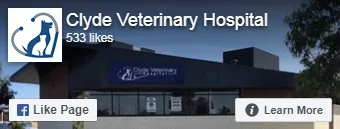Foods and Plants Toxic to Pets to Avoid This Easter to Protect Your Pets Health

As Easter nears, we look forward to celebrating with family, seeing friends and of course, delicious treats. However, it’s important to remember the risks these goodies can pose to our furry friends, as they can be toxic foods for dogs and cats.
Dogs and Chocolate:
It’s no secret that chocolate is a hazard to a dog’s health. Chocolate contains substances like theobromine and caffeine, harmful to dogs when ingested in large amounts. Additionally, the colourful wrappers on lollies can also be hazardous if swallowed, potentially causing gastrointestinal issues and might even require a visit to an emergency vet.
While chocolate is widely known to be harmful to dogs, it’s important to note that cats are also at risk. Therefore, it’s crucial to keep all chocolates out of reach of both dogs and cats to prevent any potential health issues associated with cats and chocolate ingestion.
You can keep your pets healthy by:
- Storing chocolates and lollies out of reach.
- Let guests know about the dangers to pets.
- Dispose of wrappers properly.
- Offer safer alternatives for dogs to occupy themselves with like dog toys and treats.
Candy Wrappers and Your Dog’s Health
But it’s not just the toxic food for dogs itself that can pose a threat, the colourful wrappers can also be harmful when ingested. One way to notice this happening is your pet breathing heavily.
The sharp edges of the foil on wrappers pose another danger to dogs, such as tearing or puncturing the digestive tracts that might require an emergency visit to the vet.
Pet Holiday Stress
All the excitement around the easter period can be exciting, but can also be anxiety inducing and lead to a very stressed dogs and cats.
It’s good to remember that, like us, dogs and cats can be overwhelmed too, and that puppies and kittens can experience stress too. So during the easter holidays, your pets will thank you for checking in on them particularly when their normal environment is being invaded by unfamiliar people, which will mean you’ll have a much less stressed pet..
Easter Plants and Flowers:
Easter is a time for flowers aplenty, with lilies and daisies being some of the most popular during easter celebrations. However, for cats, lilies are particularly harmful, all parts of the lily plant contain toxins that can cause severe damage if eaten.
Symptoms of a cat eating lily flowers include:
- Vomiting
- Loss of appetite
- Lethargy
What to do if your Cat or Dog is Unwell
Contact Clyde vet or us immediately for guidance if you believe your cat or dog has eaten poisonous foods or is displaying any of these symptoms. Certain situations, such as a pet ingesting toxic foods or displaying alarming symptoms like your pet breathing heavily, may necessitate an immediate visit to an emergency vet for quick treatment.
Acting quickly can be crucial for a successful recovery, so don’t hesitate to get help if you have concerns about your cat or dog’s health.
Pet Toxic Food Treatment at Clyde Veterinary Hospital
You can trust our team of experienced vets to look after your pet if they’ve ingested harmful food or plants. Give our team a call on (03) 9052 3200 or make a booking online to get started.


